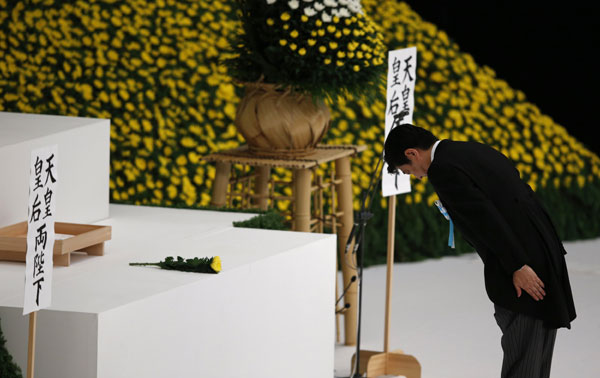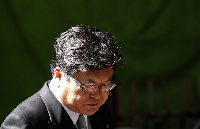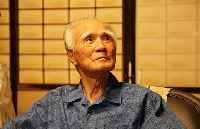 |
|
Japan's Prime Minister Shinzo Abe bows after offering a chrysanthemum flower to war dead during a memorial service ceremony marking the the 69th anniversary of Japan's surrender in World War Two, at Budokan Hall in Tokyo August 15, 2014.[Photo/Agencies] |
Followed such speech delivered last year the day, Abe said, "today is the day to renew our pledge for peace," adding the country will make contributions to lasting world peace.
|
 |
| Abe sends offering to Yasukuni Shrine, cabinet ministers visit |
|
 |
| Ex-Japanese PM opposes change to pacifist course |
The omitted part has done at the annual ceremony since 1994, the year that then Prime Minister Tomiichi Murayama released his statement expressing remorse over Japan's wartime invasion in neighboring countries.
Abe drastically changed Japan's defense stance in July by reinterpreting the country's war-renouncing constitution to allow the Self-Defense Forces (SDF) to exercise right to collective self- defense, making the SDF able to engage fight overseas for countries have close ties with Japan.
Concerns therefore arise as the majority of the Japanese public is worried about that the move, on one hand, violates Japan's legislative system, and on the other hand, could drag Japan into war again.
Abe on Friday also sent an offering to the notorious Yasukuni Shrine through his aide Kouichi Hagiuda under the position of the president of Japan's ruling Liberal Democratic Party.
Local reports said Abe's avoiding to pay his respect this time aims to prepare for a meeting of the Asian-Pacific Economic Cooperation to be held in Beijing later this year, in which Abe wants to hold talks with Chinese leaders.
Repeated worships to the shrine angers Japan's neighboring countries that suffered Japan's brutal aggression in wartime as 14 convicted Class-A Japanese war criminals during the WWII are enshrined there.
Japan's relations with its neighboring countries, especially South Korea and China, have frayed not only for territorial disputes, but also due to the Yasukuni and "comfort women" issues, which are considered as a test stone to Japan's reflection on its wartime history.
